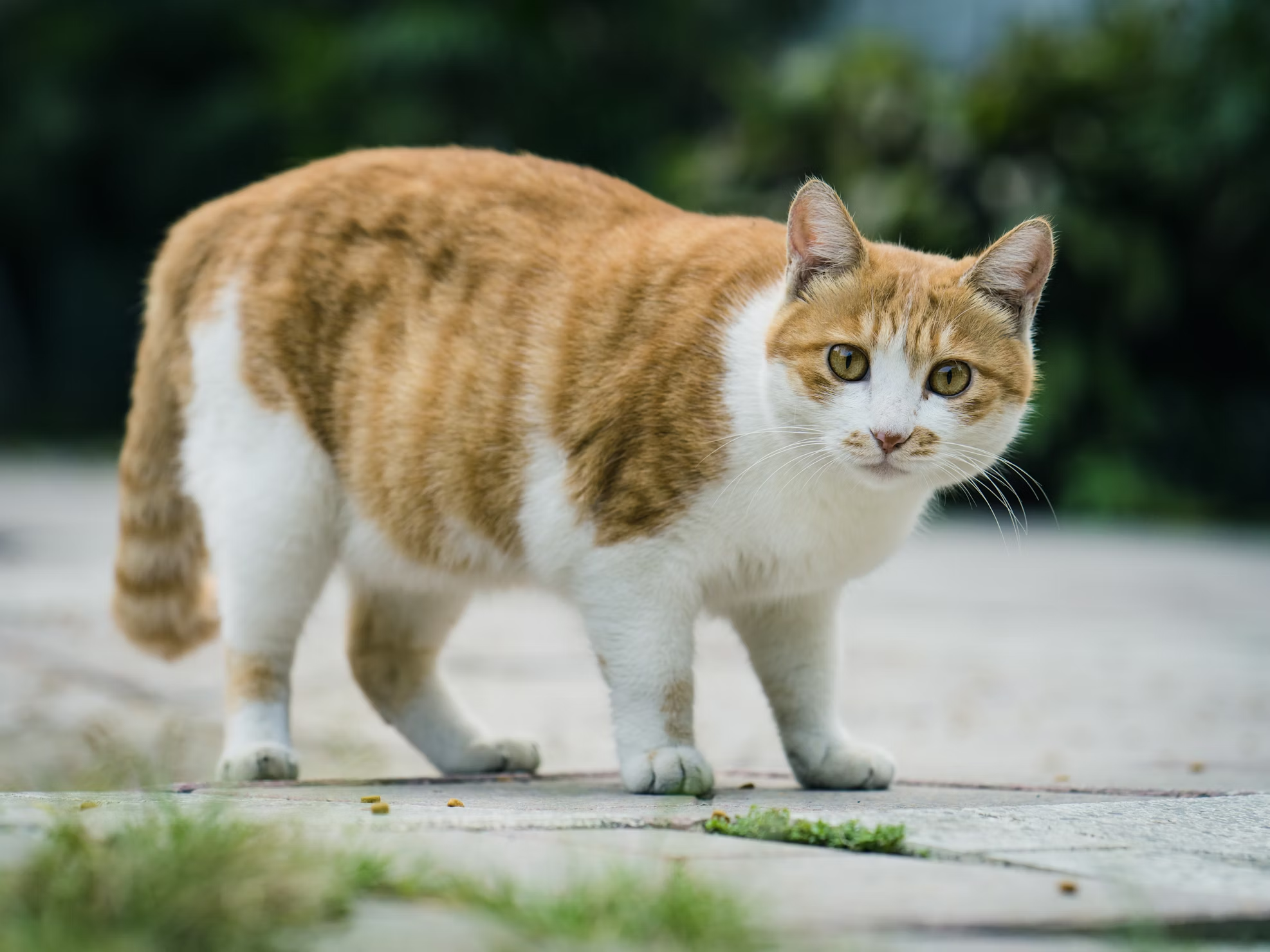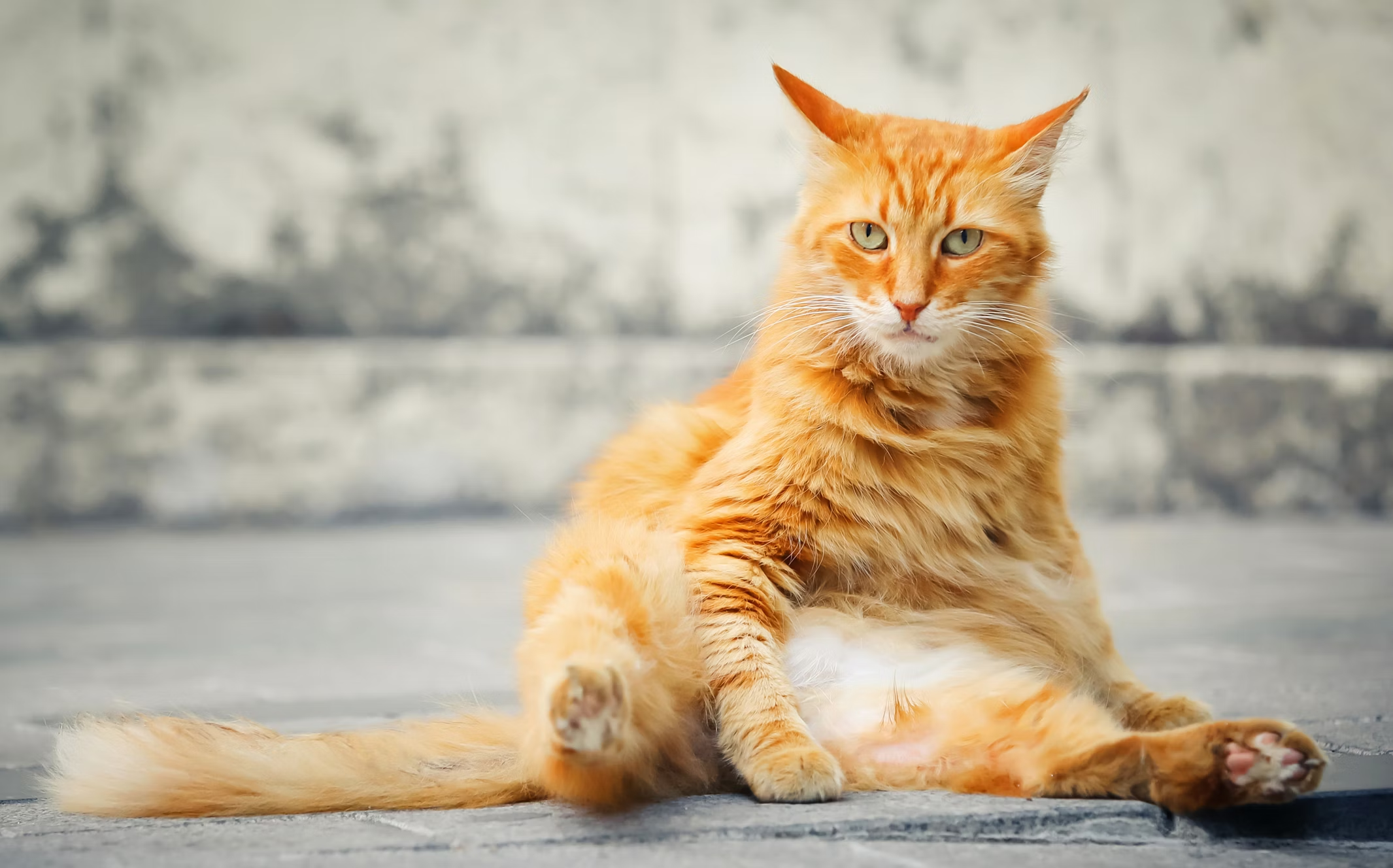
Cats are wonderful companions, providing endless joy and comfort. However, just like humans, they can suffer from weight-related issues if not properly monitored. Overfeeding and lack of exercise are common problems that can lead to obesity in cats, which in turn can cause a host of health issues. This article will guide you on how to tell if your cat is getting overweight, taking into consideration breed differences and other relevant factors.
Understanding Cat Obesity
Cat obesity is a growing concern, with studies conducted in 2022 indicating that approximately 61% of cats in the United States are overweight or obese. Obesity in cats can lead to serious health problems such as diabetes, arthritis, and liver disease. Therefore, it’s crucial for cat owners to recognize the signs of weight gain early and take action to manage their cat’s weight.
Signs Your Cat Might Be Overweight
1. Visual Inspection
One of the simplest ways to determine if your cat is overweight is through a visual inspection. A healthy cat should have a visible waistline when viewed from above and a slight tuck in the abdomen when viewed from the side. If your cat looks more like a round ball with little definition, it’s a sign of being overweight.
2. Feel for Ribs and Spine
Gently run your hands along your cat’s sides and back. You should be able to feel their ribs and spine without pressing too hard. If you have to push down to feel their bones, it’s likely your cat has excess fat.
3. Weight Check
Regularly weighing your cat can help you keep track of any changes. Compare your cat’s weight with the average weight for their breed. For example, a typical domestic short-haired cat should weigh between 8-10 pounds. Breeds like Maine Coons can weigh up to 18 pounds and still be healthy, while Siamese cats typically weigh between 6-10 pounds.
4. Behavioral Changes
Overweight cats may display changes in behavior. They may become less active, sleep more, and show reluctance to jump or climb. These changes are often subtle but can indicate your cat is carrying extra weight.
Breed-Specific Considerations
Different cat breeds have varying body structures and weight ranges. Here are some breed-specific considerations:
Maine Coons
Maine Coons are one of the largest domestic cat breeds. While they can naturally weigh between 13-18 pounds, any significant weight gain beyond this can indicate obesity. Their large bone structure can sometimes mask weight issues, so regular monitoring is essential.
Siamese
Siamese cats are typically lean and muscular, weighing between 6-10 pounds. Because of their slender build, any extra weight can be noticeable and detrimental to their health. A slight roundness in the abdomen could indicate weight gain.
Persians
Persians have a stocky build and should weigh between 7-12 pounds. Their thick fur can sometimes hide weight gain, so it’s crucial to feel their body to assess their weight accurately.
Factors Contributing to Overweight Cats
Diet and Overfeeding
One of the main reasons cats become overweight is overfeeding. Many cat owners provide more food than necessary, often due to free-feeding or giving too many treats. Cats typically need about 20 calories per pound of body weight per day. For a 10-pound cat, this translates to 200 calories per day.
Lack of Exercise
Indoor cats are more prone to obesity due to lack of exercise. Unlike outdoor cats, they don’t hunt or roam, which reduces their activity levels. Regular playtime with toys and engaging activities can help keep your cat active and healthy.
Age and Metabolism
As cats age, their metabolism slows down, and they become less active. Senior cats may require fewer calories, so it’s important to adjust their diet accordingly to prevent weight gain.
How to Manage Your Cat’s Weight
1. Portion Control
Measure your cat’s food to ensure they’re getting the right amount of calories. Avoid free-feeding and stick to scheduled feeding times. Use a measuring cup to provide consistent portions.
2. High-Quality Diet
Choose a high-quality cat food that is appropriate for your cat’s age, weight, and health needs. Consult with your veterinarian to select the best diet for your cat. Look for foods with high protein and low carbohydrate content, as cats are obligate carnivores and thrive on a protein-rich diet.
The products in our store have been hand-picked with love and care to pamper our pets. Check out the cat products we are selling here. We are local sellers in Singapore!
3. Increase Physical Activity
Encourage your cat to be more active by providing toys, climbing structures, and interactive play sessions. Laser pointers, feather wands, and puzzle feeders can stimulate your cat both mentally and physically.
4. Regular Veterinary Check-Ups
Regular visits to the vet are crucial for monitoring your cat’s weight and overall health. Your veterinarian can provide personalized advice and recommend weight management plans if necessary.
Here is a list of veterinary services available in Singapore that we recommend.
Using Technology to Monitor Your Cat’s Weight
Smart Feeders
Smart feeders can help control portion sizes and feeding times, preventing overfeeding. Some models even have built-in scales to monitor your cat’s weight.
Activity Trackers
Cat activity trackers can monitor your cat’s daily activity levels, helping you ensure they’re getting enough exercise. These devices can provide insights into your cat’s behavior and activity patterns.
Conclusion
Maintaining a healthy weight is crucial for your cat’s well-being. By monitoring your cat’s weight, providing a balanced diet, and encouraging regular exercise, you can help prevent obesity and its associated health problems. Remember, every cat is unique, so it’s essential to consider their breed, age, and individual needs when managing their weight. Regular veterinary check-ups and a proactive approach to your cat’s health will ensure they live a long, happy, and healthy life.
References
- “2022 Pet Obesity Survey Results.” Association for Pet Obesity Prevention (APOP), www.petobesityprevention.org/2022.
For further reading on cat health and diet, check out these resources:

Werner is an avid pet lover. Despite his love for pets, the only experience he has regarding animals is Animal Crossing on the Nintendo Switch.
“Animals are cute and we should protect them.”
Share this:
- Click to share on WhatsApp (Opens in new window) WhatsApp
- Click to share on Facebook (Opens in new window) Facebook
- Click to share on LinkedIn (Opens in new window) LinkedIn
- Click to share on Pinterest (Opens in new window) Pinterest
- Click to share on Tumblr (Opens in new window) Tumblr
- Click to share on X (Opens in new window) X
- Click to share on Reddit (Opens in new window) Reddit
- Click to share on Telegram (Opens in new window) Telegram
- Click to email a link to a friend (Opens in new window) Email
- Click to print (Opens in new window) Print































